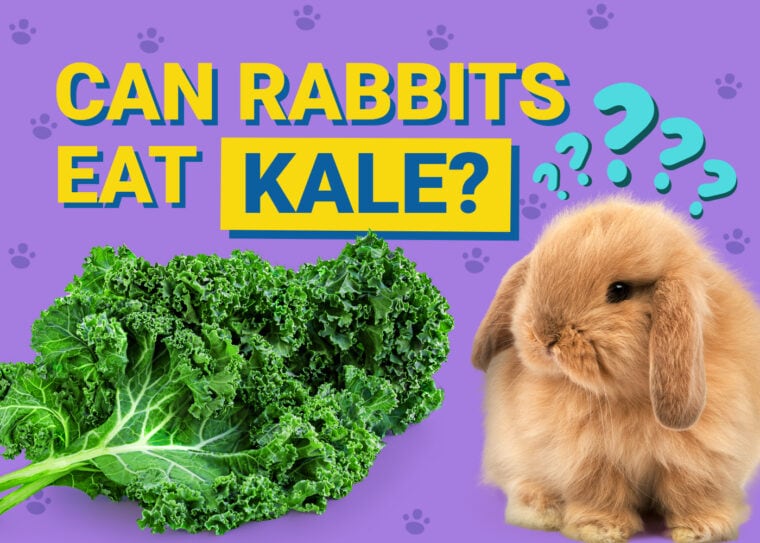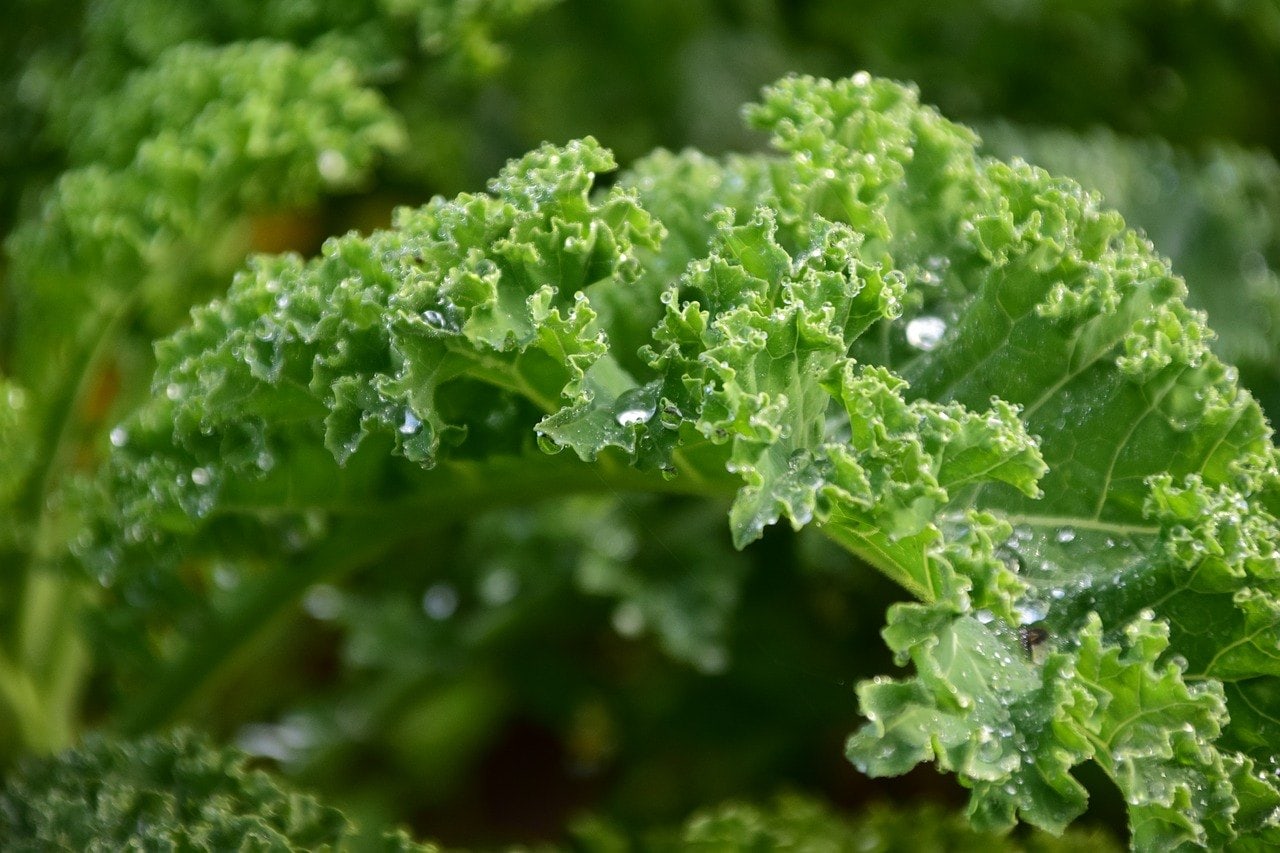
Click to Skip Ahead
Rabbits are adorable creatures that are always hopping around or chewing on a bit of food. As an owner of one of these animals, you’re left to ensure they get a healthy diet and aren’t given foods that can cause them any issues. Of course, leafy green veggies are always considered when thinking of good foods for rabbits. But what about kale? Is kale safe for rabbits? The answer to this question is yes, rabbits can eat kale. However, although kale is good for rabbits, it should only be fed to bunnies in moderation for several reasons. Let’s learn more about kale, tips for feeding it to your rabbit, and whether it’s a smart idea to incorporate this veggie into your rabbit’s diet.
Let’s learn more about kale, tips for feeding it to your rabbit, and whether it’s a smart idea to incorporate this veggie into your rabbit’s diet. Always speak to your vet about nutritional choices or any diet changes for your rabbit, and remember that hay and grass should make up 80% of their daily food intake and be offered at all times.
What Is Kale?
Whether you eat kale or not, you’ve most likely heard of it. Over the past few years, this leafy green has become a staple in restaurants and recipes everywhere. But what exactly is kale? Kale is a cruciferous vegetable. As part of the mustard family, kale is related to other veggies like broccoli and Brussels sprouts. The one it is most similar to, however, is cabbage. The kale plant is quite hardy. It can stand up to both extreme cold and hot temperatures. What this means for people who enjoy eating and cooking with kale is that the veggie is available year-round.

Nutritional Value of Kale
In hopes of understanding the significance of kale in your rabbit’s diet, it’s important to learn more about its nutritional value. This veggie contains a lot of water. It is also a good source of vitamins for your rabbit. These vitamins include carotene, vitamin B6, C, and K. You’ll also find that kale is mineral rich. It’s a great source of potassium, iron, calcium, zinc, and fiber.
Here’s a look at other nutritional facts about kale you should know.
| Portion Size | 21 grams or 1 cup |
| Calories | 7.4 |
| Total Fat | 0.3 grams |
| Sodium | 11 mg |
| Total Carbohydrates | 0.9 grams |
| Dietary Fiber | 0.9 grams |
| Sugars | 0.2 grams |
| Protein | 0.6 grams |
 Can Rabbits Eat Kale?
Can Rabbits Eat Kale?
As we’ve already mentioned, like most leafy vegetables, rabbits can eat kale. They even find and enjoy kale in the wild. Kale is low in calories and sugar. It is also dense in nutrients. This makes it an ideal snack. It is even great for rabbits that need to lose weight or whose parents are trying to control their weight based on their vet’s advice. Kale is also a source of fiber for rabbits that will keep their digestive tracts in shape.

The Precautions With Kale
While kale is generally safe for rabbits, it shouldn’t be considered a daily food source. Offering kale to your rabbit once or twice a week is considered safe. You should also mix the kale with other leafy greens when doing this. Fruit and vegetables combined should not make more than 15% of a rabbit’s daily food intake. Why should such a healthy veggie like kale be limited for your rabbit? Let’s learn more.
The Calcium in Kale
Kale has low to moderate oxalate content, but what about calcium? While calcium is great for bones and teeth, too much calcium can be dangerous for your rabbit. Too much calcium can increase the risk for health issues ,like bladder stones, bladder sludge, and other urinary issues. This is due to rabbits absorbing more calcium from their diet than they require. This extra calcium is released through the renal tract. When too much kale is introduced, the excess calcium can cause severe urinary issues and calcium deposition in tissues.
Gastrointestinal Issues
Another danger of feeding a rabbit too much kale or excess of other food ingredients is gastrointestinal problems. These issues, such as gas, gut stasis, and bloating, can be major issues for rabbits. Any type of gastrointestinal upset can be dangerous for a rabbit and even life-threatening. If you notice your rabbit isn’t eating or defecating as they should, a veterinarian should be contacted immediately.
 How to Safely Introduce Kale to Your Rabbit
How to Safely Introduce Kale to Your Rabbit
The first thing to keep in mind when offering raw, organic kale to your rabbit is to properly wash the vegetable. All dirt and sediment should be removed. If you use store-bought or other types of kale, make sure to wash it as well and ensure no pesticides have been used. Wilted, rotted, or damaged kale of any kind should be completely avoided.
Kale doesn’t need to be cooked for a rabbit. In fact, they prefer it raw. You should also introduce kale slowly to rabbits. This will help avoid any reactions in their GI tracts. Try a small leaf the first time and slowly work your way up each time you allow your rabbit to enjoy this vegetable. Also, keep an eye out for changes in your rabbit’s digestion. If you see irregular bowel movements or no movements at all, stop offering your rabbit kale and reach out to your veterinarian. Always ensure your rabbit has an unlimited supply of high-quality hay available at all times.

Final Thoughts
Kale is a healthy veggie that rabbits love. If you want to mix things up and offer your rabbit a variety of vegetables, introducing kale is a great idea. However, too much kale can be an issue. Make sure you only feed your rabbit a bit of kale once or twice a week. If you notice any health issues after kale is introduced, reach out to your veterinarian for assistance.


 Can Rabbits Eat Kale?
Can Rabbits Eat Kale?





